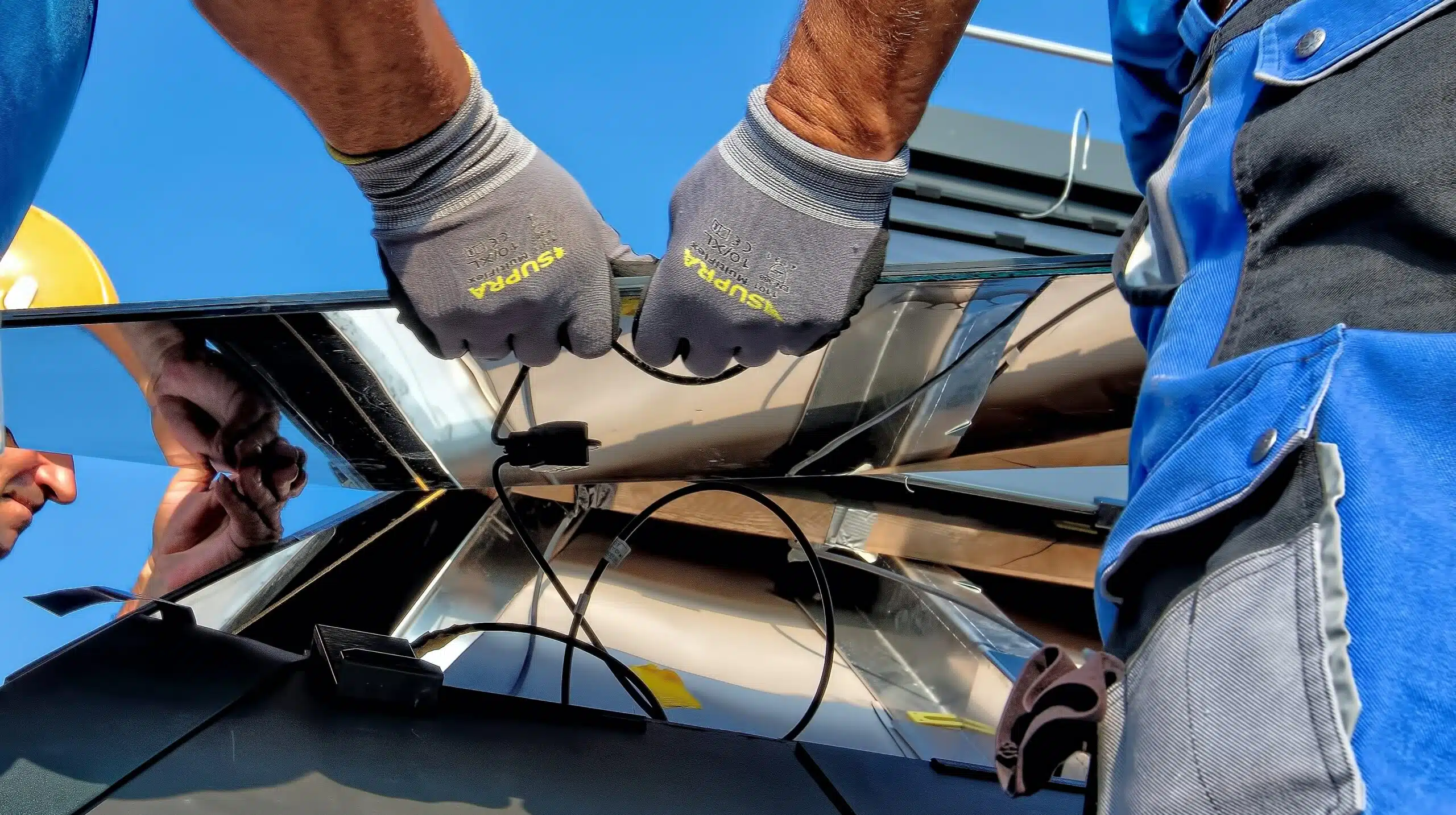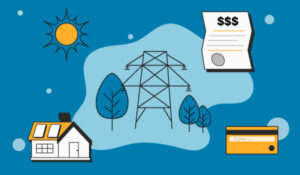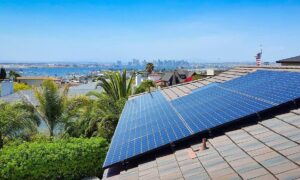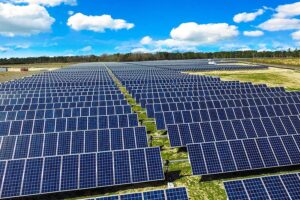- Benefits of Solar Installation for Home
- Understanding the Solar Power System Components
- Choosing the Right Solar Panels for Your Home
- Steps to Install Solar Panels on Your Roof
- Maximizing Energy Efficiency with Solar Power
- Maintenance and Care for Solar Panels
- Frequently Asked Questions about Solar Installation
Benefits of Solar Installation for Home
Solar power is becoming an increasingly popular choice for homeowners looking to reduce their carbon footprint and save on energy costs. There are numerous benefits to installing solar panels on your home, both for the environment and for your wallet.
One of the primary benefits of solar installation for home is the reduction in electricity bills. By harnessing the power of the sun, you can generate your own clean and renewable energy, which can significantly lower your monthly energy expenses. With solar panels, you can also earn credits for any excess energy you produce through net metering, further reducing your electricity costs.
Another major advantage of solar installation is environmental sustainability. Solar power is a clean and renewable energy source, meaning it doesn’t emit harmful greenhouse gases or contribute to air pollution. By utilizing solar energy, you are actively contributing to the fight against climate change and helping to create a more sustainable future for generations to come.
In addition to the financial and environmental benefits, solar installation for home can also increase the value of your property. Many homebuyers are now seeking out homes equipped with solar panels, as they recognize the long-term savings and environmental advantages. Installing solar panels can make your home more attractive to potential buyers and potentially lead to a higher resale value.
Understanding the Solar Power System Components
To fully comprehend how solar installation works, it’s essential to understand the various components of a solar power system. The key components include solar panels, inverters, batteries, and monitoring systems.
Solar panels are the heart of any solar power system. They consist of photovoltaic (PV) cells that convert sunlight into electricity. These panels are typically mounted on the roof or in an open area where they can receive maximum sunlight exposure.
Inverters play a crucial role in the solar power system by converting the direct current (DC) electricity produced by the solar panels into alternating current (AC) electricity that can be used to power your home. They ensure that the power generated by the solar panels is compatible with your household appliances and the electrical grid.
Batteries are optional components but are becoming increasingly popular for homeowners looking to store excess energy for later use. By utilizing batteries, you can store energy generated during the day and use it during the night or during power outages.
Monitoring systems allow homeowners to track the performance of their solar power system. These systems provide real-time data on energy production, consumption, and overall system efficiency. By monitoring your system, you can identify any potential issues and ensure optimal performance.
Choosing the Right Solar Panels for Your Home
When it comes to selecting the right solar panels for your home, there are several factors to consider. The most important considerations include efficiency, durability, warranty, and cost.
Efficiency refers to the ability of solar panels to convert sunlight into electricity. Higher efficiency panels produce more electricity in a given area, making them more suitable for homes with limited roof space. However, higher efficiency panels may come at a higher cost.
Durability is another crucial factor to consider. Solar panels are designed to withstand various weather conditions, including rain, snow, and hail. Look for panels with a strong frame and high-quality materials to ensure they can withstand the test of time.
Warranty coverage is essential to protect your investment. Most solar panels come with a standard warranty of around 25 years, guaranteeing their performance and durability. Be sure to review the warranty terms and conditions before making a decision.
Cost is often a significant consideration for homeowners. While solar installation can require an upfront investment, it’s essential to evaluate the long-term savings and return on investment. Consider factors such as energy savings, potential tax incentives, and rebates when assessing the overall cost-effectiveness of solar panels.
Steps to Install Solar Panels on Your Roof
Installing solar panels on your roof typically involves several steps. It’s crucial to hire a professional solar installer to ensure a safe and efficient installation process. Here are the general steps involved in solar panel installation:
1. Site Assessment: The solar installer will assess your property’s suitability for solar installation by evaluating factors such as roof orientation, shading, and structural integrity.
2. Design and Permitting: Once the site assessment is complete, the installer will design a customized solar system based on your energy needs and obtain the necessary permits from local authorities.
3. Roof Preparation: Before installing the solar panels, the installer will prepare the roof by ensuring it’s clean, free of debris, and in good condition.
4. Mounting and Wiring: The solar panels will be mounted on the roof using racking systems, and the wiring will be connected to the inverter and electrical panel.
5. System Testing: After the installation is complete, the system will undergo comprehensive testing to ensure proper functioning and connectivity.
6. Activation and Monitoring: Once the system is tested and approved, it will be activated, and you can start enjoying the benefits of solar power. Regular monitoring will help track performance and address any issues that may arise.
Maximizing Energy Efficiency with Solar Power
While solar installation itself is a significant step towards energy efficiency, there are additional measures you can take to maximize the benefits of solar power.
One way to enhance energy efficiency is by installing energy-efficient appliances. By replacing old and inefficient appliances with energy-saving models, you can further reduce your overall energy consumption and increase the effectiveness of your solar power system.
Another effective strategy is to implement energy-saving practices in your daily routine. This includes turning off lights and appliances when not in use, utilizing natural light as much as possible, and properly insulating your home to minimize heat loss.
Additionally, you can consider integrating smart home technology into your solar power system. Smart home devices allow you to monitor and control energy usage, optimize energy distribution, and automate energy-saving tasks.
By combining solar power with energy-efficient practices and technologies, you can significantly reduce your reliance on traditional energy sources and achieve a more sustainable and cost-effective energy solution for your home.
Maintenance and Care for Solar Panels
Proper maintenance and care are crucial to ensure the longevity and optimal performance of your solar panels. Here are some essential maintenance tips to keep in mind:
1. Regular Cleaning: Dirt, dust, and debris can accumulate on the surface of solar panels, reducing their efficiency. It’s recommended to clean the panels regularly with water and a soft brush to remove any build-up.
2. Check for Damage: Periodically inspect the solar panels for any signs of damage, such as cracks or loose connections. If you notice any issues, contact a professional for repairs.
3. Trim Nearby Trees: If there are trees or branches casting shadows on your solar panels, consider trimming them to maximize sunlight exposure.
4. Monitor Energy Production: Keep track of your solar system’s energy production through the monitoring system. If you notice a significant drop in output, it could indicate an underlying issue that requires attention.
5. Professional Inspections: Schedule regular inspections by a professional solar technician to ensure the overall health and performance of your solar power system.
By following these maintenance practices, you can extend the lifespan of your solar panels and ensure they continue to generate clean and efficient energy for years to come.
Frequently Asked Questions about Solar Installation
Here are some common questions homeowners have about solar installation:
Q: How long does it take to recoup the investment in solar panels?
A: The payback period for solar panels varies depending on factors such as energy consumption, local electricity rates, and available incentives. On average, homeowners can recoup their investment within 5 to 10 years.
Q: Can I install solar panels myself?
A: Solar panel installation requires technical expertise and knowledge of electrical systems. It’s recommended to hire a professional solar installer to ensure a safe and efficient installation process.
Q: Are there any government incentives for installing solar panels?
A: Many governments offer incentives such as tax credits, rebates, and grants to homeowners who install solar panels. Check with your local authorities or consult a solar installer to explore available incentives in your area.
Q: What happens to excess energy generated by solar panels?
A: Excess energy generated by solar panels can be fed back into the electrical grid through net metering. In some cases, homeowners can earn credits or receive compensation for the surplus energy they produce.
Q: Are solar panels suitable for all types of roofs?
A: Solar panels can be installed on most types of roofs, including asphalt shingles, metal roofs, and flat roofs. However, the orientation, angle, and shading of your roof may affect the efficiency of the solar panels.





